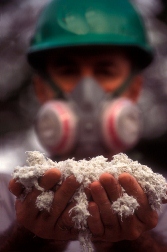Asbestos Contamination and Other Common Basement Problems
Whether your basement is a rarely visited storage area or a top-of-the-line entertainment and gaming hub, it is going to be subject to the many of the same problems that affect all basements.
Because of their location at or below ground level, basements deal with a variety of issues that don’t necessarily affect other parts of the home. Potential problems include everything from minor maintenance nuisances to full on catastrophes that run the risk of destroying your home’s value.
Here are some common basement issues that all homeowners should be on the lookout for:
- Asbestos: Older insulation surrounding boilers, furnaces and pipes in basements may be contaminated with asbestos. It’s more common than you may think. If you fear that your basement may be contaminated, you should test it and seek out licensed Denver asbestos removal services.
- Too much humidity: The majority of basements face this problem, especially when there is condensation from the pipes and cracks in the walls and floors that allow moisture inside.
- Unfinished floors: Unfinished floors can turn a basement into an eyesore. White powdery substances, orange rust stains and mold issues can build up on unfinished surfaces. Investing in professional basement finishing and remodeling will expand the usefulness of your space and make it easier to maintain.
- Bad odors: When you have humidity in your basement, it can lead to mold, rot, mildew and dust mites on your wall paper, fiberglass, wood, drywall, paint, cloth and leather, leading to the funky smell.
- Leaky windows: Windows that aren’t sealed properly can lead to water getting inside, which can cause floods, mildew and humidity. A good waterproofing system is highly recommended.
- Cracks in the walls and floors: It’s important to have cracks in your basement taken care of or they will grow bigger and allow water to seep through. This can cause contraction and expansion as the temperatures change, causing your foundation to shift dangerously.
- Buckling walls: Hydrostatic pressure caused by groundwater can press on the walls of your basement from the exterior. When cracks in the walls go unfixed, the combination can lead to your walls bowing and buckling. This can be fixed if caught early enough.
- Mold: Because basements are commonly damp and humid, and have wood, cloth and other similar items stored in them, it can become a feeding ground for mold. This should be handled quickly before it spreads to other areas of your home.

